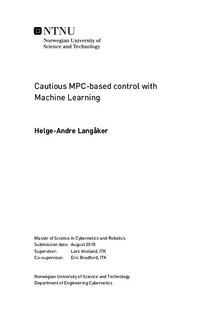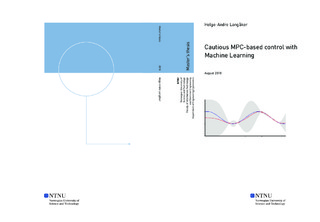| dc.description.abstract | Using Gaussian processes as a nonparametric regression model together with model predictive control has the recent years showed promising results by utilizing the expected uncertainty that follows the GP. By utilizing the uncertainty in the constraints we are able to take into account regression deviation directly in the MPC constraints. This thesis has studied the effectiveness of using the GP with MPC constraints, with the special focus on the stability of the predictions. We have looked at two different systems, a stable four-tank system with slow dynamics, and a vehicle model with obstacle avoidance using a hybrid-GP model. This showed the interesting property that the accuracy of the prediction is determined by the stability properties in the system we like to control. We were able to keep the tank system stable without any problems, while the hybrid-GP in the car system suffered from divergence and exponential growth in uncertainty, even though the regression validation showed that the hybrid-GP should have better accuracy. Multi-step prediction in a marginally stable or unstable system can result in the divergence in the predictions due to minuscule errors. Taken this into account, the GP show great promise in the field of adaptive control as an effective method of adapting to system changes, where the uncertainty can give a good estimate of the prediction error. | |

